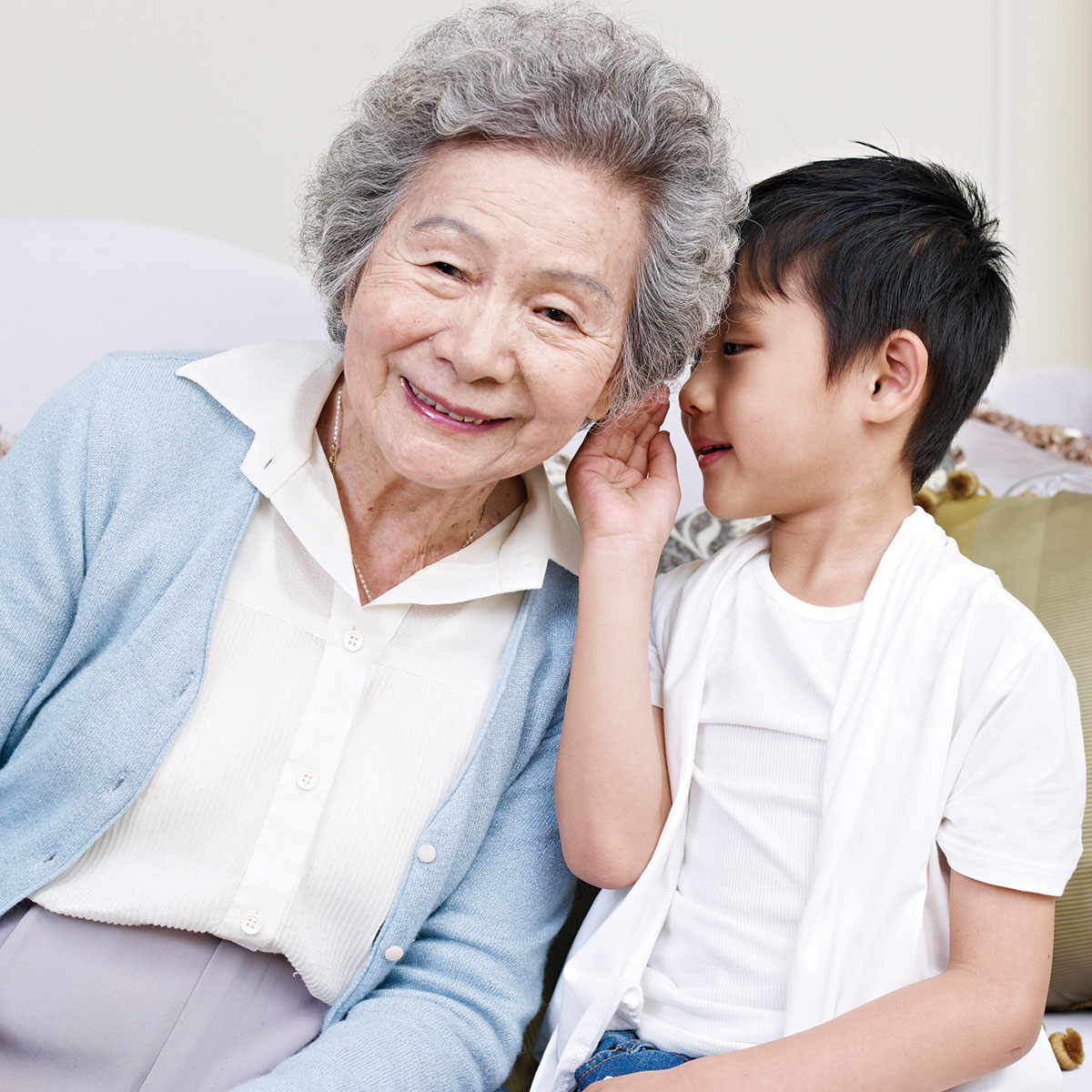
From tender and thoughtful to forgetful and agitated — Alzheimer’s disease creates an emotional roller coaster that’s difficult for adults, let alone children, to understand. But finding a comfort zone for kids to hug Grandma or talk baseball with Grandpa is a challenge that millions of families are facing.
An estimated 5.4 million Americans live with Alzheimer’s — 100,000 in Washington state alone. Barring a cure, the number of people 65 and older with Alzheimer’s and other forms of dementia may climb to 7.1 million by 2025 and 13.8 million by 2050, according to the Alzheimer’s Association.
Five years ago, Mary Devlin-Cooley, 65, joined those numbers. Her Alzheimer’s symptoms, mild now, will progress, and she fears losing her connection with her grandchildren.
“Seeing them is huge,” says the Lake Stevens resident. “Even if for some reason I couldn’t remember their names, I would still know who they are in my heart.”
That’s one of the reasons why Devlin-Cooley’s son, Jarrod Cooper, and his wife, Lori Cooper, are committed to maintaining the connection between Devlin-Cooley and their five children, who range in age from 4 to 17. Their first step: Educate the family.
“They say knowledge is power, so if the children understand, they’re going to be less uncomfortable around Grandma,” says Cooper. As the disease progresses, the Lake Stevens family will talk more about “where Grandma’s headed and what we as a family can do to love and help her.”
Understanding the incomprehensible
The first step toward helping children comprehend the change is for parents to reconcile their own feelings — loss, fear, frustration — about a loved one’s dementia. “Children will notice if parents haven’t dealt with their own stuff first,” says Janelle Jensen, a care consultant with the Washington state chapter of the Alzheimer’s Association.
Talk with friends in similar situations, join a support group or call the Alzheimer’s Association’s 24/7 help line if you feel overwhelmed, she says.
Honesty also matters. “You can’t pretend there’s not something happening. Kids are smart. They’ll pick up on it,” Jensen says. “Be honest about it, but in an age-appropriate way.”
Start by keeping things simple. “The parent can just explain that Grandma or Grandpa may forget things . . . but they still need our love and our hugs and our visits,” says Wendy Gardner, vice president of quality services for Merrill Gardens, which operates senior living communities in Washington and five other states. Take your cue about discussing the disease’s science and progression based on the questions a child asks, she says.
Also, prepare children. Coach them on how to respond when Grandma mixes up names or repeats herself. One strategy: Go along with it, says Jensen. Respect the person, she says, by respecting the illness.
“The disease can’t handle a lot of pushback. The disease can’t handle being corrected. But the disease can handle positive, in-the-moment experiences,” she says. “It’s a great lesson for everyone [because] all any of us really have is the moment.”
And if that moment is in the past, go there, too, says Dr. John Addison, director of Mercer Island’s Northwest Geriatrics. If, for example, Grandpa likes to talk about growing up in Kansas, encourage your child to read about Kansas to help Grandpa expand on his stories.

Living in the moment
People with Alzheimer’s often struggle to make decisions, Jensen adds, so anticipate what activities they might like to share with a child — painting, listening to music, taking a walk — and then just do them. “A lot of it might be trial and error,” she says. “You have to be flexible.”
Parents also need to be sensitive to any fear or anxiety children may feel. “Don’t force [things],” Jensen says. “Let them guide the interaction as a way to respect their boundaries.”
Alzheimer’s shuts many doors, but one of the last to close is the door to a person’s heart, Jensen continues. “People connect emotionally for a very long time with this disease, longer than they’re able to talk or react in a way that we understand,” she says. “It’s one of those diseases where a smile goes a long way.”
That’s especially true when the smile belongs to a child.
“Young children have a general joy for life that seniors with Alzheimer’s pick up on,” Gardner says. “Adults are more concerned with how the person was versus how they are now. Children tend to live in the moment and that’s very similar to someone with Alzheimer’s.”
Learning what you can
Some parents may want to preserve positive memories by shielding their children from a loved one with Alzheimer’s, but that only increases the isolating power of the disease, Addison says.
“The child has something to offer the person with Alzheimer’s,” he says. It might be as simple as sharing a coloring book or talking about school, but it matters. “I would even call it therapeutic.”
The loved one with Alzheimer’s also has something to give: a life lesson in how to love no matter what.
Signs and symptoms of dementia
Increased memory loss Difficulty remembering recurring activities such as weekly appointments or monthly bills may indicate something more than typical forgetfulness. You may find the person frequently repeats himself or forgets critical information, such as the dosage for a medication or when to take it.
Change in hygiene Is a loved one’s hair uncombed? Is she constantly forgetting to brush her teeth? These are indications that a person’s memory may be negatively changing.
Personality shift If a person’s mood fluctuates depending on the time of day or he displays odd behaviors, such as inaccurately accusing others, there may be more significant medical concerns at play.
Sundowning This term refers to when the elderly become confused, anxious and aggressive toward the end of the day. In this state, they often ignore directions or pace and wander.
A serious memory diagnosis involves the entire family. By identifying signs early on and finding the right medical team, you can help ensure that a loved one’s twilight years are as fulfilling and comfortable as possible.
— Dr. Connie J. Smith, medical director, EvergreenHealth Geriatric Care











